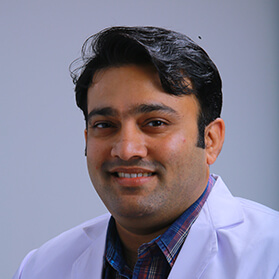The hope of having a baby in less than a year is exciting enough for any couple to forget any hurdles on the way. Which is why you have been through the cautious and laborious process of IVF. Despite the long and frequent sessions with your gynaecologist, what tests your patience is the two weeks after the embryo transfer. These two weeks are crucial for the embryo to grow into your foetus which determines your pregnancy. It is extremely hard to wait out these days for the same reason. Most couple will have a million questions about the dos and don’ts of these two week period. It is normal to be bothered about playing your part right but it is better to be aware than to overthink and cause stress.
Happy Vibes
After the embryo implantation, you need to be at your absolute comfort zone. Nothing benefits your body better than being calm and happy. The easiest way is to have people that shower you with positive vibes around. Your support system creates a favourable environment which lets you relax and leads your body and mind into a soothing state. It won’t be bad to avoid that family member or friend that deeply cares for you, but worry all the time and increase your stress level. This positive environment will keep your hormones and other bodily functions normal which increases the chances of your embryo to have a normal development.
Optimum Physical Activity
On the contrary to popular belief, a complete bed rest is not the best choice unless it is advised by your gynaecologist. In case of a healthy woman, a 24 hour bed rest right after the implantation can’t be beneficial for the embryo. Your body needs to function normally which allows enough blood circulation and hormone balance in your system. A complete bed rest that doesn’t involve any of your daily activities will leave you with plenty of time to think. Or more accurately, plenty of time to overthink which can contribute to the stress level.
Similarly, overexerting your body is also not a good idea. Extreme workout or any kind of heavy lifting can be disadvantageous at this point. Vigorous exercises such as cycling and high impact aerobics are also best to avoid. Sexual intercourse is not recommended during these 14 days.
The best choice is to follow your normal routine with eliminating activities that overexert your body. Do not hesitate to get out of the house and go for a walk with your family or friends. One of the essentials that your routine must have is adequate amount of sleep. If you don’t have the habit of sleeping up to eight hours a day then it is time to start a new habit. Your body need all the pampering and extra bit of energy it can have.
Stress is the Enemy
The mortal enemy of your mind is undoubtedly stress. The two weeks that follows IVF is a time most prone to stress and you do have enough reasons to worry about. Your mind will most likely be on the verge of falling into a trap of emotions including anxiety and fear of failure. However, fighting those emotions and maintaining your balanced state of mind will be worth the effort.
Stress can put your body on an alerted state which leads to the release complex mix of hormones and chemicals such as adrenaline and cortisol which are not wanted at the time. Being with your loved ones and not spending all day in bed with nothing else to think about are two easiest ways to stay away from stress. You can always find methods such as meditation or indulge in your most loved hobbies to deal with this pivotal time.
Not Too Hot
Temperature is a key factor at this point. Increase in temperature can affect the early stages of embryo’s growth and result in failure of IVF. You must stay away from any form of high temperature including hot bath, sauna and steaming even if your body is familiar with these conditions.
Couple going in for IVF must know that your gynecologist is your best source for advice. In case of any doubt or concerns, you must talk to them and figure out what is best for you.
About the Author
Dr. Parasuram Gopinath is the Senior Consultant & Scientific Director at CIMAR Fertility Center with branches in several parts of Kerala. Tamil Nadu & Dubai. After Dr Parasuram completed his post-graduation in Obstetrics and Gynecology, his work has been mainly focused on infertility and embryology. He had undergone further training in Advanced Reproductive Techniques like Oocyte Cryopreservation, IMSI, IVM etc. from several centers in Singapore, Germany & Canada. He has personally done over 3000 ICSI procedures and was instrumental in introducing the technique of IMSI in South India. He is an Invited speaker at Several National conferences on Infertility and do also have several publications to his credit.

Dr. Parasuram Gopinath, MBBS. MS(OBG)

